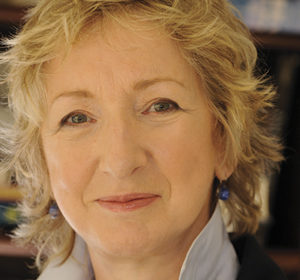“Rise again, rise again / Tho’ your heart, it be broken / Your life about to end / No matter what you’ve lost / A home, a love, a friend /
Be like the Mary Ellen Carter / Rise again.”
– Words from the “The Mary Ellen Carter” as sung by Tommy Makem. (The Mary Ellen was a ship).
We have a plethora of features in this issue and a fresh new look to celebrate the beginning of our 23rd year. From our cover story on Padraig Harrington, Ireland’s man of the moment, to the Last Word – there’s something for everyone.
Looking back over the photographs from our past issues and events, I was struck by how many wonderful people we managed to bring together over the years in celebration of our Irish heritage. I was looking for one photograph in particular though, and I didn’t find it – of me presenting the Irish of the Century Award to Tommy Makem.
But I had a great last conversation with Tommy. He called me on March 30 to say he was sorry to have missed our Top 100 event on March 11. My heart lurched a bit when I heard his voice because I knew he had been diagnosed with lung cancer, but he sounded chipper.
“Tearing away like a tinker’s shirt,” he answered when I asked him how he was doing. He’d been hospitalized with pneumonia thus missing our Awards, but he was fine now, he explained. The BBC had been filming a documentary on his life, and he was planning appearances at a couple of upcoming festivals. He extolled the talents of his sons Shane, Conor, and Rory (The Makem Brothers) who he described as “a mixture of the Clancy Brothers and the Kingston Trio,” and mentioned with pride the honorary degree he would be receiving from the University of Ulster. Talk turned to Keady, County Armagh where he was born, and where in 2000 he established the Tommy Makem International Festival of Song “to try to get people to come out for a night’s craic.”
As the conversation went on, I scrambled to take notes, regretting that I didn’t have my voice recorder hooked up.
We discussed Ireland’s booming economy – he worried about the heritage being lost – and the Navan Fort “thought to have been in use 4,000 to 5,000 years ago.”
He told me, frustration filling his voice, how he had tried for years to prevent the Armagh district council “which regards it [the Fort] as a Fenian place,” from downsizing it. And how he wished that some of the “38 million pounds” going to promote the Ulster Scots was directed instead towards the Fort “the center of ancient Irish culture,” with ties to the goddess Macha and Cuchulainn.
A conversation with Tommy was always heady, and my fingers flew on the keyboard trying to keep up with his words. We finished up talking about Nova Scotia and the Celtic Colours Festival in October, which he planned to attend, and I said that maybe I would too, and he said I should do a story on St. Mary’s Church in Dover, New Hampshire, which was built by Irish immigrants back in 1872 and was celebrating its 135th anniversary.
Tommy was as passionate about Irish-American history, and Dover, as he was about Ireland and Keady.
It was to Dover that he had immigrated in 1955, like many Northerners before him, to work in the mills. It was to St. Mary’s on August 9, 2007, that thousands came to pay their last respects as the City of Dover Fire and Rescue Department’s Engine 3 led a processional down Central Avenue, its lights flashing and sirens silenced, carrying with it Tommy’s casket.
Tommy left behind a legacy of song and story that will influence generations to come. The international fame he achieved helped raise the profile of the Irish everywhere. And the performance he and the Clancy Brothers gave at the White House for President Kennedy
heralded a new chapter in the story of Irish America.
No one knew that story better than Tommy. Perhaps his interest stemmed from his time as a mill worker and an accident that crushed his hand. He was always ready with a story or a song about the struggle. As I look over past issues portraying the history and achievements of the Irish in America, and I pause over the final proofs of our Wounded Warrior story by Tara Stackpole in this issue, a song he sang comes to mind, one that could be a mantra for the Irish story. It’s from an album that Tommy made with Liam Clancy called We’ve Come A Long Way, and it goes like this:
Rise again, rise again,
Tho’ your heart, it be broken,
Your life about to end,
No matter what you’ve lost,
A home, a love, a friend,
Be like the Mary Ellen Carter,
Rise again. ♦


Leave a Reply